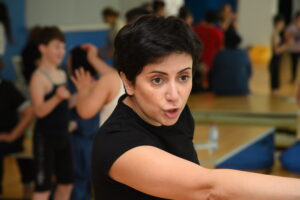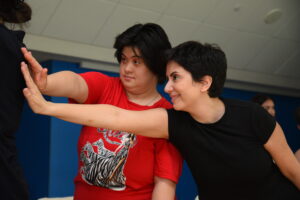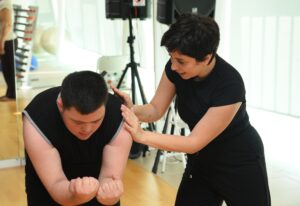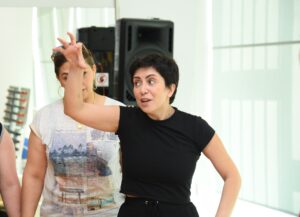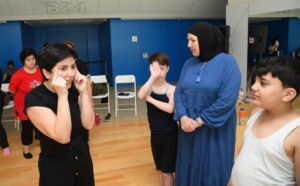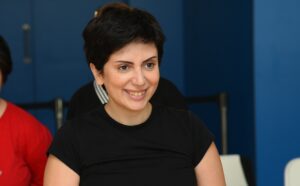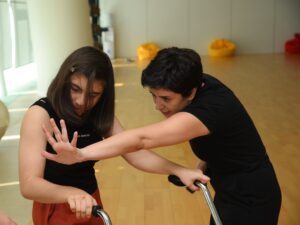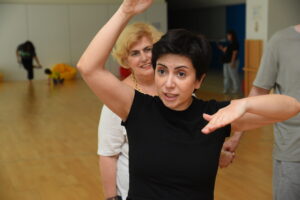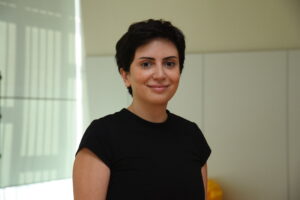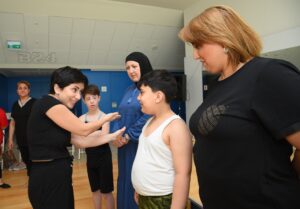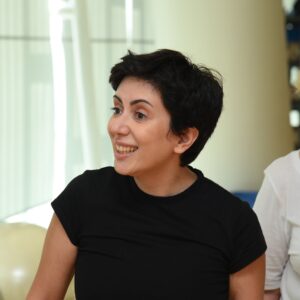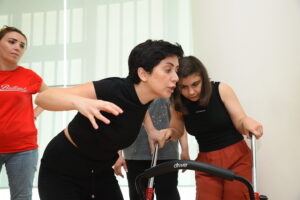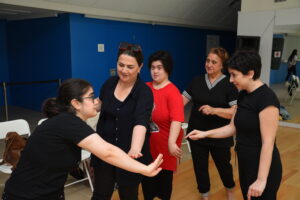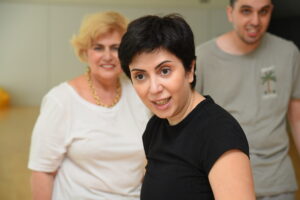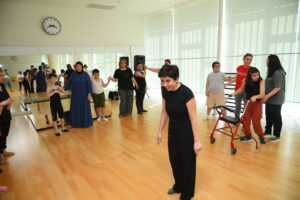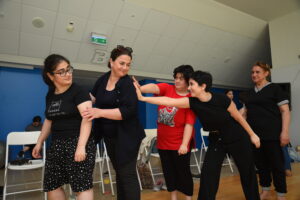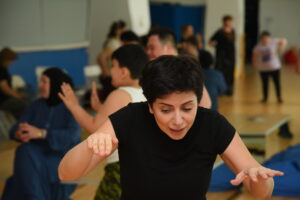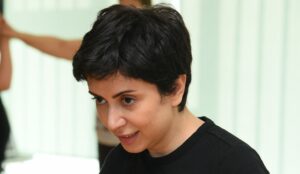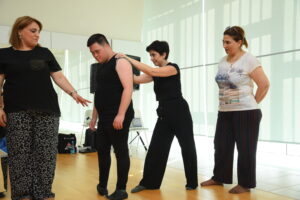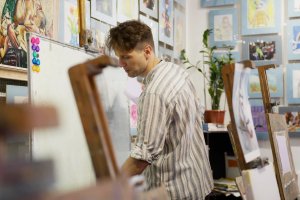
Unleash your potential and uniqueness! How dancer Nigar Yildirim develops inclusive art in Azerbaijan
For many people, dance is a way of gaining freedom and harmony. You forget your fears and worries when you immerse yourself in the world of dance. Dance allows you to convey your thoughts and to tell your story. This kind of creativity helps everyone to express their individuality.
Dance and working with vulnerable people has an important role in Nigar Yildirim’s life. Recently, Nigar has received a grant for the mobility programme under the EU-funded EU4Culture project.
The four-year project supports the cultural and creative sector with a special focus on smaller towns and cities in the Eastern Partnership countries. Since its inception, EU4Culture has launched three mobility grant calls and supported the mobility projects of 274 individuals.
EU4Culture has launched its fourth call for mobility grants supporting internships, study visits, conferences, and professional development, aiming to promote intercultural dialogue and knowledge exchange among cultural professionals.
The competition is open to artists or cultural professionals from all cultural sectors who are citizens or legal residents of EaP countries over the age of 18.
The call supports four types of mobilities: short-term mobilities (5-10 calendar days) – up to €1,500; medium-term mobilities (up to 5 weeks) – up to €3,500; long-term mobilities (up to 12 weeks) – up to €5,000; virtual mobilities (online participation) – up to €1,000.
To apply for the EU4Culture Mobility grants, applicants must submit an action plan and budget for their proposed international mobility through the Goethe Application Portal (GAP). The deadline for submitting the applications is 25 September 2023, 18:00 (CET).
Nigar Yildirim has received a grant and she will soon take an intensive course in Devised Theatre and Creative Practice led by modern master David Glass in Athens, Greece. His creative practices and research have been used by organisations such as the UN and Save the Children.
Nigar Yıldırım aims to create theatre that unites people with and without disabilities. Through this theatre she hopes to attract public attention to social issues such as violence against women, early marriages and discrimination.
It all started in childhood
“I studied at Nasiraddin Tusi High School, where we used to take national dance classes. After classes, I liked to redo everything. I didn’t realise then that it was improvisation. I closed my eyes and let my body move with or without music. I felt better, the space around me seemed to expand, everything turned out to be more accessible, and there was nothing but this moment,” says Nigar Yildirim.
“However, my father did not let me choose a dance career and I chose a different speciality – I entered the Baku Slavic University to study Russian Language and Literature. Later, I moved to Turkey and started working on creative projects. Then I became interested in Cuban dances and even flew to Cuba for that purpose. Later, in Turkey while performing with Cuban teams, I wanted to change the programme,” Nigar Yildirim says.
Dance of the soul
“So I decided to create a space where no one would tell people what to do and how to do it. I called this “dance of the soul”. Then I started to develop exercises, and came across an interview by my teacher Alito Alessi, who founded the DanceAbility dance method in the USA in 1987 that I teach now. The method offers tools that reveal your potential and uniqueness. This unique method helps absolutely everyone to participate in the classes – people of different ages and gender, including people with disabilities. After completing this course in Austria in 2016, a year later I visited my family in Baku and decided to stay here to introduce it to my homeland. I felt that while I had been away, there had been changes in social inclusiveness, and I wanted to be a part of this process,” she says.
How did Nigar find out about the EU4Culture project?
“I learned about the EU project through my friends who informed me of the grant calls. I had to describe my activity type in the application form and indicate the mobility programme for which I hoped to receive a grant. I am going to study again and take David Glass’s course, who explains how to create a common product for a team. This is geared towards collaborative activity without a leader deciding the performance process. David believes that each of us is unique and that we can introduce our own ideas. His course is called Devised Theatre and I feel I can really relate to these concepts. Every year, 10 people are selected for the course. My classes will start this July and will last for a month,” Nigar Yildirim says.
“When I applied for the grant I had to clearly indicate what benefits I am going to bring to my country. I am mainly interested in inclusiveness, equality, domestic violence, and early marriages and other issues that are more common among women. When I allude to these and other social issues in the creative process, I do not want to show what is bad and what is good. I respect everyone’s opinion, and I do not want to impose any one opinion on anyone else. Through art I strive to illustrate potential scenarios resulting from early marriage,” Nigar Yildirim says.
Why is it important to work with people from socially vulnerable groups?
“The method I teach affords everyone equal opportunities. There are more than 200 exercises on the curriculum. They are designed to improve emotional resilience and state of mind, social skills, interpersonal communication, develop empathy, and foster leadership skills and teamwork. The most important thing in this job is to love people – the rest can be learned. I became a master and trained 50 rehabilitators and psychologists, who now also teach. I want everyone to have the opportunity to be physically active, express themselves and interact with others. It is important to make sure that people are not isolated for any reason and that everyone feels welcomed and loved. I am really lucky to meet people who perceive the world, life, and our existence in such a different way. It enriches my consciousness, my soul.
After taking the course by David Glass, I am planning to create theatre that demonstrates social issues. Sometimes you can see a lot of negative news in the media, and for our perception, maybe we need other examples, a different projection on consequences of certain situations. I hope I will learn how to work on this following David Glass’s course,” she added.
What gives the strength to work?
“I think, first of all, this is my therapy; I can hardly imagine myself without this work. At the end of each lesson, we share our impressions and record our experience. Everyone describes their state of mind. Some do this through drawing, some express it in words, and others demonstrate it through callisthenics. Any experience is valuable, and most importantly, we can talk about it in a space where there is no condemnation and no one will mock you, where there is support. We go through different stages of life, and it’s always easier when you’re not alone.
Throughout the year, people with disabilities can come to us and invite someone with them free of charge. People from low-income families, war veterans and their relatives, members of martyr families can also come to classes free of charge. We run social networks meaning it’s easy to get in touch with us. For those who do not quite understand what these classes are – callisthenics or dancing, I always advise them that it is better to come and have a go,” Nigar concludes.
Nigar Yildirim’s project is one of 45 projects selected and implemented by Azerbaijani citizens under the EU4Culture in 2023. The organisers approved a total of 56 applications from Azerbaijan. At this stage, new applicants for grants are selected. Azerbaijani citizens, artists and cultural professionals can take this opportunity.
To learn more about these grants and applications please click the link.
Author: Jani Babayeva
Article published in Azerbaijani and Russian by Milli.az and Day.az
MOST READ
RELATED PROJECTS
SEE ALSO

No, time is not on Russia‘s side
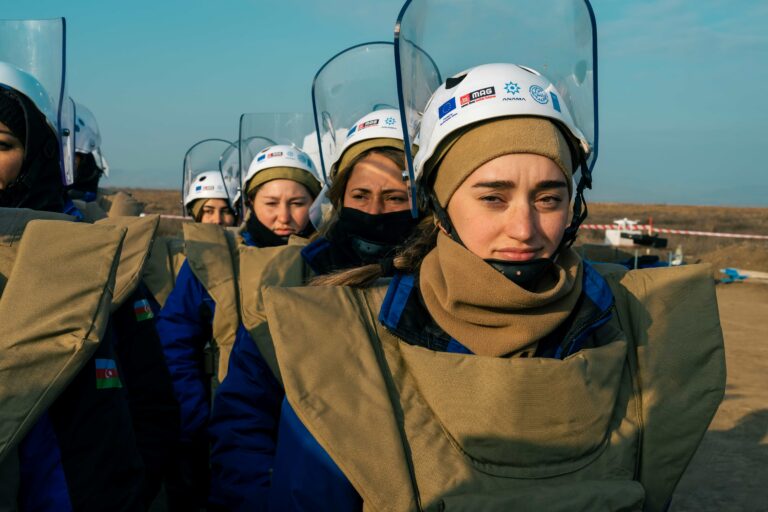
I have no regrets: the Azerbaijani women trained to clear mines
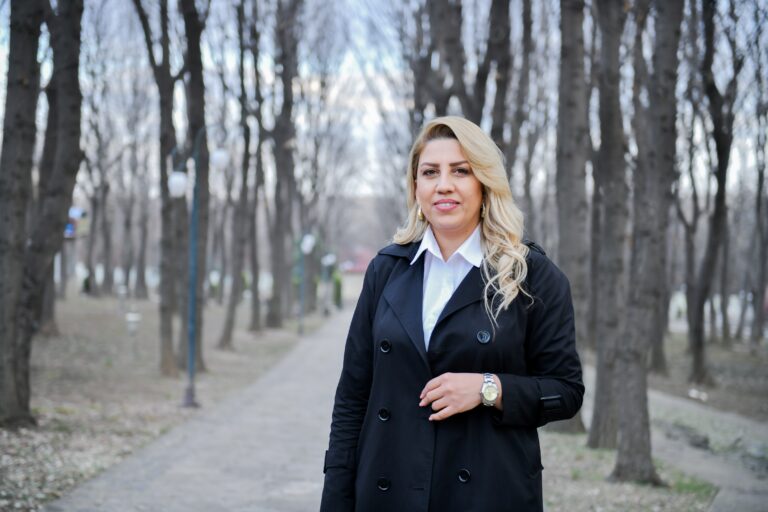
Turning a hobby into business: how Vusala Akhmadova from Tovuz helps women and children develop

Be one step ahead of a hacker: check simple cybersecurity tips!
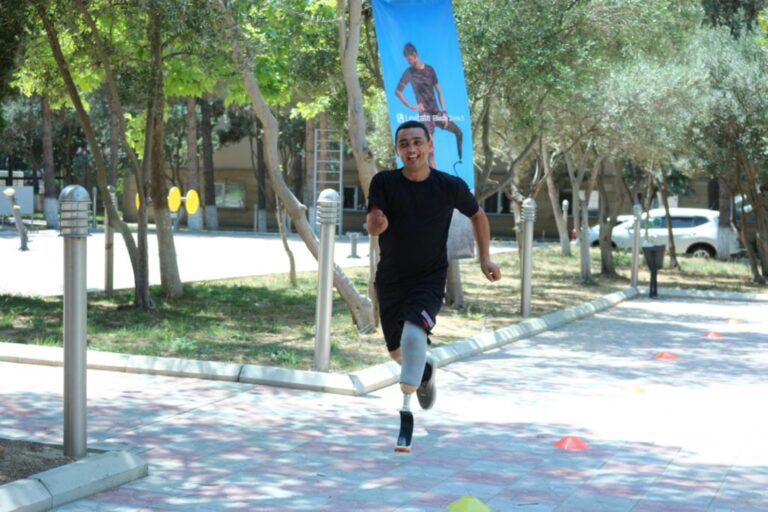
A chance for a better life: restoring justice for people with disabilities in Azerbaijan
More campaign pages:
Interested in the latest news and opportunities?
This website is managed by the EU-funded Regional Communication Programme for the Eastern Neighbourhood ('EU NEIGHBOURS east’), which complements and supports the communication of the Delegations of the European Union in the Eastern partner countries, and works under the guidance of the European Commission’s Directorate-General for Neighbourhood Policy and Enlargement Negotiations, and the European External Action Service. EU NEIGHBOURS east is implemented by a GOPA PACE-led consortium. It is part of the larger Neighbourhood Communication Programme (2020-2024) for the EU's Eastern and Southern Neighbourhood, which also includes 'EU NEIGHBOURS south’ project that runs the EU Neighbours portal.

The information on this site is subject to a Disclaimer and Protection of personal data. © European Union,
